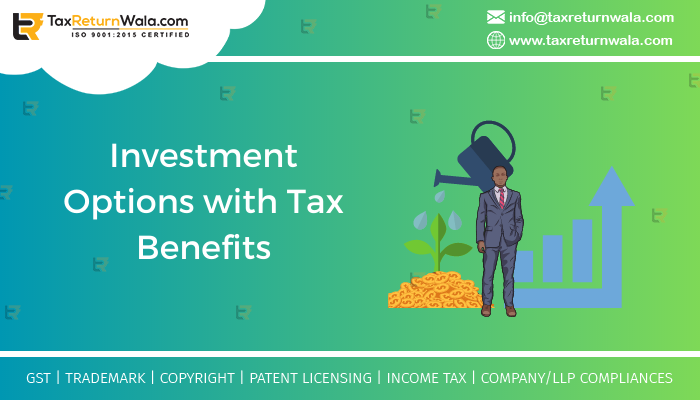Market Linked Investment Options with Tax Exemptions
We all have to forego a part of our income by paying taxes to the government. In fact, the Indian taxation system being progressive in nature charges higher taxes on higher income than lower income. This reduced the tax burden on people with low income/earnings. In contrast, the government also provides relief by allowing exemptions and deductions to the taxpayers. This is done to encourage investment amongst the taxpayers. Given below are a few market-linked investment options that allow tax exemptions.
Equity Linked Savings Schemes(ELSS):
- ELSS are close-ended mutual funds with a 3-year lock-in period that invest in equity shares of companies across sectors and market capitalizations.
- They are a tax-saving equity investment under Section 80C of the Income Tax Act. They are eligible for a deduction of up to ₹1.5 lakhs.
- Gains above ₹1 lakh made on the transfer of ELSS funds with 65% or more exposure to equity is subject to 10% percent long-term capital gain tax(LTCG) from April 1, 2018. Gains made till January 2018 are exempted from tax.
- Since dividends declared in ELSS qualify for a dividend distribution tax of 10%, the growth option is better for investment purposes.
National Pension Scheme (NPS):
NPS is a pension scheme by the government that ensures retirement benefits with regular contributions during your working life. It is also a tax-saving equity investment.
- An individual can either invest money in different asset classes (active choice) or opt for a default option which invests money as per their age (auto choice)
- Active choice allows you to invest up to a maximum of 75% in Asset class E, which invests in equities. The auto choice also offers three life cycle options with 25%, 50%, and 75% equity exposure
- One can claim an additional deduction of ₹50,000 as per section 80CCD1(b) of the Income-tax for their contribution to NPS making it one of the few market-linked investments with tax benefits
- Section 80CCD(1) allows an employee to claim a contribution made by him up to 10 percent of his salary(basic plus DA). This is within the ₹1.5 lakh deduction limit under 80C and 80CCE
Unit Linked Insurance Plan (ULIP):
It is a unique financial instrument that allows market-linked investments with tax benefits and also provides insurance
- ULIPs come with a lock-in period of 5 years and allow investors fund options with different asset allocations between equity and debt to choose from
- This tax-saving equity investment enables you to save tax upto ₹1.5 lakhs as per Section 80C paid towards the premium of a ULIP in a financial year
- The fund value of the policy on exit( either after 5 years or longer) from the ULIP is also tax-free in the hands of the investor
- One can also freely switch between various fund options available without any tax implications
- They are among the only market-linked instruments outside the ambit of the Long Term Capital Gains tax.
National Savings Certificate (NSC):
NSC is a fixed-income tax-saving investment scheme similar to fixed deposits. You can invest in NSC at any post office. NSC is initiated and backed by the Central Government of India. This makes it a relatively safe investment.
- Investments in NSC are tax-exempt up to ₹1.5 lakh in a financial year. Interest in the NSC is compounded annually and added to the principal of the following year.
- In the second year of investment in the NSC, you can claim a tax deduction on your new NSC investment for that year and the interest earned on the previous year’s certificate.
- On maturity, the proceeds from NSC investments are taxable.
- NSC can be a good tax-saving investment option for risk-averse investors with a medium-term investment horizon.
The Sukanya Samriddhi Yojana (SSY) :
- It is a tax-free small savings scheme for the girl child. It was launched on January 22, 2015.
- The parents or legal guardians of a girl aged ten years or below can open an SSY account at any post office in India doing savings bank work, or at any branch of a commercial bank authorized by the central government.
- Investments Minimum: Rs 250 per annum Maximum: Rs 1.5 lakh per annum
- Interest: 7.6 percent compounded annually
- Tenure: 21 years from the date of account opening. It can be closed prematurely after five years in certain cases.
Our investment Portfolio should be a balanced of securities and funds which allow a certain degree of market leverage. As an investor investment decisions must be on the basis of our risk appetite because investment options are wide with moderate risk to high risk and returns. Map your financial goals to determine the investment options and build a strong and diverse portfolio that caters to your financial needs.
Need tax help?
Please ping us today at info@taxreturnwala.com


